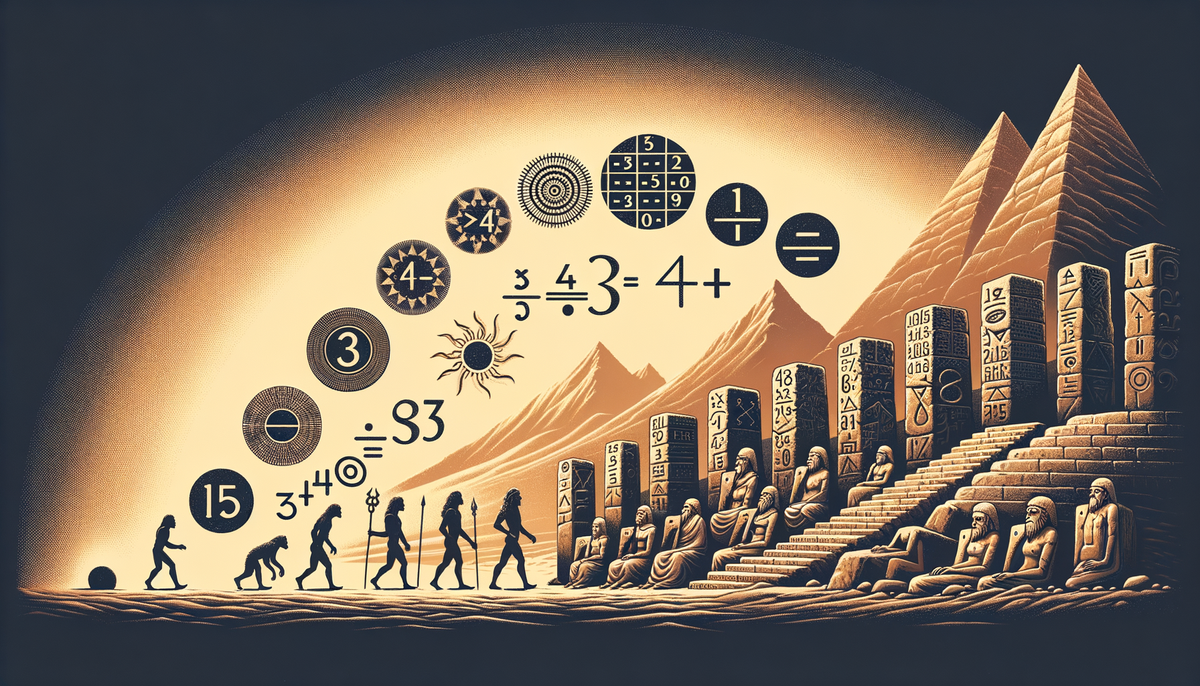The Development of Algebra in Ancient Civilizations
Discover the rich history of algebra as it evolved through ancient civilizations, from the Babylonians and Egyptians to the Greeks and the Islamic Golden Age.

Introduction
As an archaeologist, the journey through time often reveals more than just ruins and artifacts; it also uncovers the intellectual marvels of ancient civilizations. One such marvel is the development of algebra. This fascinating branch of mathematics has ancient roots that stretch across various cultures and epochs. Today, I invite you to travel back in time with me to explore how algebra was developed in ancient civilizations.
The Babylonians: Masters of Early Algebra
Around 2000 BCE, in the land between the Tigris and Euphrates rivers, the Babylonians were crafting the early stages of algebra. Their approach was mostly empirical—solving specific problems rather than general principles. Using clay tablets, they documented methods to solve quadratic and linear equations. Their contributions laid the groundwork for future advancements in the mathematical world.
Egyptian Innovations
In ancient Egypt, algebraic methods were primarily used for practical purposes like distributing food supplies and calculating construction projects. The Rhind Mathematical Papyrus, dating back to around 1650 BCE, reveals a collection of algebraic problems and their solutions. The Egyptians used a method akin to algebra to solve linear equations, a concept that’s still relevant today and can be explored in modern educational resources like this page on linear equations in one variable.
Greek Contributions: From Arithmetic to Algebra
The Greeks took a more abstract approach to mathematics, focusing on number theory and geometric solutions. Euclid's 'Elements' laid the foundation for future algebraic studies by formalizing mathematics with logical proofs and principles. Diophantus of Alexandria, often called the 'father of algebra,' wrote 'Arithmetica,' a seminal work that introduced symbolic manipulation, paving the way for modern algebraic notation.
The Islamic Golden Age: Algebra Flourishes
During the Islamic Golden Age, mathematicians like Al-Khwarizmi significantly advanced algebra. His book 'Al-Kitab al-Mukhtasar fi Hisab al-Jabr wal-Muqabala'—from which the term 'algebra' is derived—unified Greek geometric methods with Indian numeric systems. Al-Khwarizmi's work laid the groundwork for systematic, symbolic algebra, influencing both medieval and Renaissance mathematics.
Conclusion
It's awe-inspiring to see how algebra evolved through different ancient civilizations, each contributing uniquely to the body of knowledge that we rely on today. As we unearth more artifacts and texts from these ancient worlds, our understanding deepens, reminding us that the quest for knowledge transcends time and culture.



